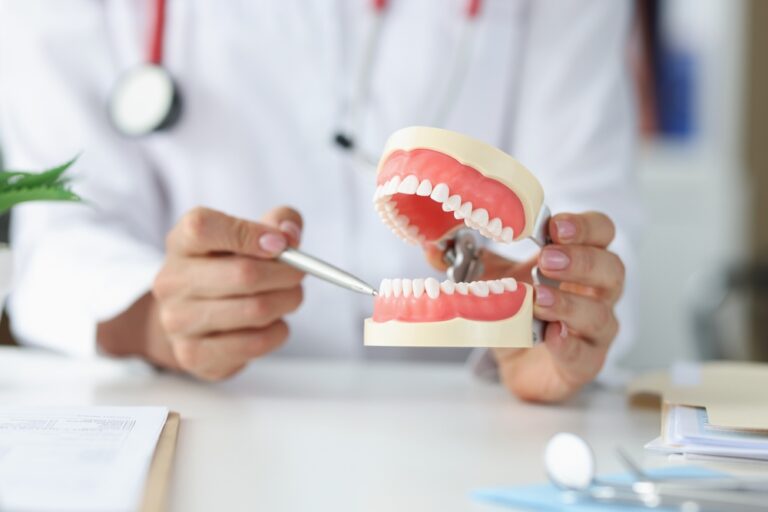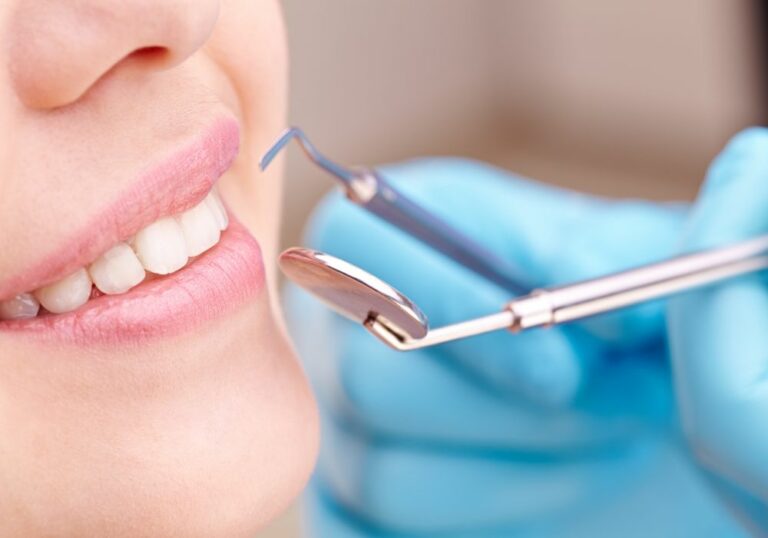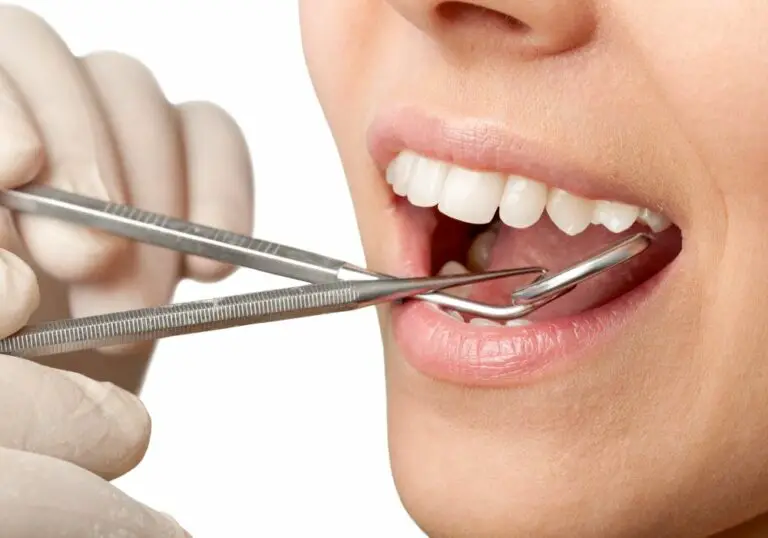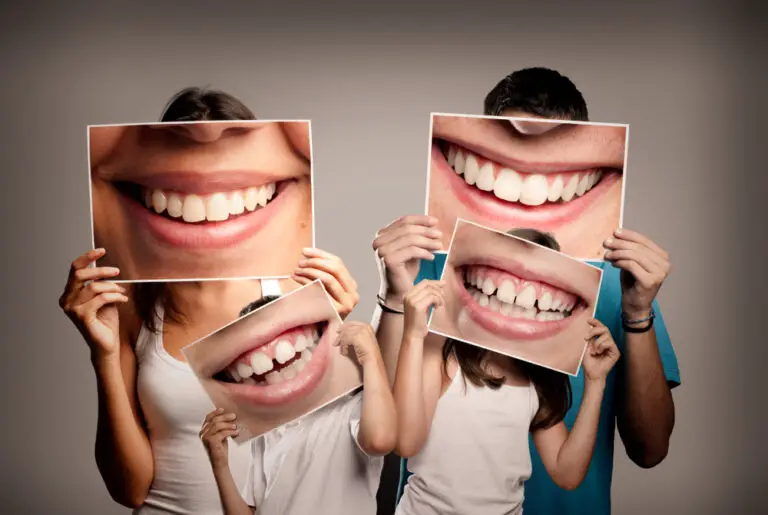Do you have white spots on your teeth? If so, you may be wondering if they will ever go away. The answer depends on the cause of the spots. Some spots may disappear on their own, while others may require treatment. In this article, we will explore the different causes of white spots on teeth and what you can do to make them go away.
White spots on teeth can be caused by a variety of factors, including poor oral hygiene, dehydration, and excessive fluoride intake. In some cases, white spots may be a sign of tooth decay or enamel erosion. If left untreated, these conditions can lead to more serious dental problems, such as cavities and gum disease. Therefore, it is important to address white spots on teeth as soon as possible to prevent further damage to your oral health.
If you’re dealing with white spots on your teeth, don’t worry – there are several treatment options available. Your dentist may recommend enamel microabrasion, which involves removing a small amount of enamel from the teeth to reduce the appearance of white spots. Other treatments may include teeth whitening, dental bonding, or porcelain veneers. With the right care and attention, you can get rid of white spots on your teeth and enjoy a brighter, healthier smile.
Understanding Teeth Spots

If you have noticed white or brown spots on your teeth, you may be wondering what they are and whether they will go away. Teeth spots can be caused by a variety of factors, and understanding the cause of your spots is the first step in determining the best course of treatment.
Causes of Teeth Spots
There are several possible causes of teeth spots, including:
- Fluorosis: Overexposure to fluoride during tooth development can cause white or brown spots on the teeth.
- Poor oral hygiene: Not brushing and flossing regularly can lead to the buildup of plaque and the development of white spots on the teeth.
- Enamel hypoplasia: This condition occurs when the enamel on the teeth is not fully formed, leading to white or brown spots.
- Diet: Consuming too many sugary or acidic foods and drinks can lead to the development of white spots on the teeth.
Types of Teeth Spots
There are two main types of teeth spots: white spots and brown spots. White spots are typically caused by a buildup of plaque or enamel hypoplasia, while brown spots are often caused by fluorosis or poor oral hygiene.
It is important to note that not all teeth spots require treatment. In some cases, the spots may go away on their own with improved oral hygiene or a change in diet. However, if you are concerned about the appearance of your teeth or if the spots are causing discomfort, it is important to consult with a dentist to determine the best course of treatment.
In the next sections, we will discuss some of the treatment options for teeth spots.
Do Teeth Spots Go Away?
White spots on teeth can be a cosmetic concern for some people. The good news is that, depending on the cause of the spots, they may go away on their own or with treatment. However, some spots may be permanent.
If the white spots are caused by poor oral hygiene or a buildup of plaque, they may go away with proper brushing and flossing. Regular dental cleanings can also help remove any buildup and prevent future spots from forming.
If the spots are caused by fluorosis, a condition caused by excessive fluoride intake during tooth development, they may not go away on their own. However, in mild cases, the spots may become less noticeable over time.
Enamel hypoplasia, a condition where the enamel does not develop properly, can also cause white spots on teeth. In some cases, the spots may go away on their own as the enamel continues to develop. However, in more severe cases, the spots may be permanent.
Intrinsic stains, which are located within the tooth, may not go away with brushing or dental cleanings. However, professional teeth whitening treatments may be able to reduce the appearance of these spots.
Overall, whether or not teeth spots go away depends on the cause of the spots. Maintaining good oral hygiene and seeking professional dental care can help prevent and treat many types of spots. If you are concerned about the appearance of white spots on your teeth, it’s best to consult with your dentist to determine the cause and appropriate treatment.
Prevention of Teeth Spots

White spots on teeth can be prevented by following a few simple steps. Here are some tips to help you prevent teeth spots:
Dietary Habits
Your diet plays a big role in the health of your teeth. Here are some dietary habits that can help prevent teeth spots:
- Limit sugary and acidic foods and drinks: Sugary and acidic foods and drinks can erode tooth enamel and cause white spots on teeth. Limit your intake of soda, candy, and other sugary and acidic foods and drinks.
- Eat a balanced diet: Eating a balanced diet that is rich in vitamins and minerals can help keep your teeth healthy and strong. Make sure to include plenty of fruits, vegetables, and whole grains in your diet.
- Drink plenty of water: Drinking plenty of water can help wash away food particles and bacteria that can cause tooth decay and white spots on teeth.
Oral Hygiene Practices
Good oral hygiene practices can also help prevent white spots on teeth. Here are some oral hygiene practices that you should follow:
- Brush your teeth twice a day: Brush your teeth twice a day with a fluoride toothpaste to help remove plaque and prevent tooth decay.
- Floss daily: Flossing can help remove food particles and plaque from between your teeth and prevent tooth decay and white spots on teeth.
- Use mouthwash: Using a fluoride mouthwash can help strengthen your teeth and prevent tooth decay.
- Visit your dentist regularly: Regular dental check-ups can help detect and prevent tooth decay and white spots on teeth.
By following these dietary habits and oral hygiene practices, you can help prevent white spots on teeth and maintain good oral health.
Treatment Options for Teeth Spots
If you’re dealing with spots on your teeth, you may be wondering what your treatment options are. Fortunately, there are several options available to help reduce the appearance of teeth spots. Here are some treatment options to consider:
Over-the-Counter Solutions
There are several over-the-counter products that can help reduce the appearance of teeth spots. Some of these options include:
- Whitening Toothpaste: Whitening toothpaste can help remove surface stains and reduce the appearance of teeth spots over time.
- Whitening Strips: Whitening strips are a convenient option for at-home teeth whitening. They can help reduce the appearance of teeth spots with regular use.
- Whitening Mouthwash: Whitening mouthwash can help remove surface stains and freshen your breath at the same time.
While over-the-counter solutions can be effective for some people, they may not work for everyone. If you’re looking for more dramatic results, you may want to consider professional dental treatments.
Professional Dental Treatments
Professional dental treatments can help reduce the appearance of teeth spots more effectively than over-the-counter solutions. Here are some professional dental treatments to consider:
- Microabrasion: Microabrasion is a procedure where a dentist removes a small amount of enamel from the teeth to reduce the appearance of spots.
- Teeth Whitening: Teeth whitening is a popular option for reducing the appearance of teeth spots. Your dentist can provide in-office or at-home whitening treatments to help brighten your smile.
- Dental Bonding: Dental bonding involves applying a tooth-colored resin to the teeth to cover up spots and improve the overall appearance of your smile.
It’s important to note that not all professional dental treatments are suitable for everyone. Your dentist can help you determine which treatment option is best for your individual needs.
Long-Term Effects of Teeth Spots

If you have white spots on your teeth, you may be wondering whether they will go away on their own or if they will have any long-term effects on your oral health. Here’s what you need to know:
Effects on Appearance
White spots on your teeth can be unsightly and make you feel self-conscious about your smile. Depending on the cause of the spots, they may or may not go away on their own. However, even if they do disappear, they can leave behind permanent discoloration or damage to your tooth enamel.
Effects on Tooth Health
White spots on your teeth can be a sign of early tooth decay or demineralization, which can lead to cavities and other dental problems if left untreated. If the spots are caused by poor oral hygiene or a diet high in sugar and carbohydrates, you may be at risk for more serious dental issues down the line.
In addition, if the spots are caused by a systemic condition, such as celiac disease or a vitamin deficiency, you may be at risk for other health problems as well. It’s important to talk to your dentist if you notice any changes in the appearance of your teeth.
Treatment Options
Depending on the cause of the white spots, there are a variety of treatment options available. Your dentist may recommend enamel microabrasion, which involves removing a small amount of enamel to reduce the appearance of the spots. Other options include teeth whitening, dental bonding, or porcelain veneers.
However, the best way to prevent white spots on your teeth is to practice good oral hygiene and maintain a healthy diet. Brush your teeth twice a day, floss daily, and visit your dentist regularly for cleanings and checkups. Avoid sugary and acidic foods and drinks, and drink plenty of water to stay hydrated. By taking care of your teeth, you can prevent white spots and other dental problems from developing in the first place.
Frequently Asked Questions
Can white spots on your teeth go away?
Yes, in some cases, white spots on your teeth can go away on their own. This is especially true if the white spots are caused by dehydration or a lack of minerals in your diet. However, if the white spots are caused by other factors, such as dental fluorosis, they may not go away on their own.
How long do white spots stay on teeth?
The length of time that white spots stay on your teeth depends on their cause. Some white spots may go away on their own within a few days or weeks, while others may be permanent. If you are concerned about white spots on your teeth, it is important to speak with your dentist.
What causes white spots on teeth?
White spots on teeth can be caused by a variety of factors, including poor oral hygiene, excessive fluoride intake, and certain medical conditions. White spots on teeth can also be a side effect of braces or other orthodontic treatments.
How do you get rid of spots on your teeth?
The best way to get rid of spots on your teeth depends on their cause. If the white spots are caused by poor oral hygiene, improving your brushing and flossing habits may help. If the white spots are caused by excessive fluoride intake, your dentist may recommend reducing your fluoride exposure. In some cases, dental treatments such as microabrasion or veneers may be recommended.
Are white spots on teeth permanent?
In some cases, white spots on teeth may be permanent. This is especially true if the white spots are caused by dental fluorosis or other medical conditions. However, many cases of white spots on teeth can be treated or improved with proper dental care and treatment.
What are the best treatments for white spots on teeth?
The best treatment for white spots on teeth depends on their cause. In some cases, improving your oral hygiene habits may help. In other cases, dental treatments such as microabrasion, veneers, or tooth whitening may be recommended. Your dentist can help determine the best treatment for your individual needs.







